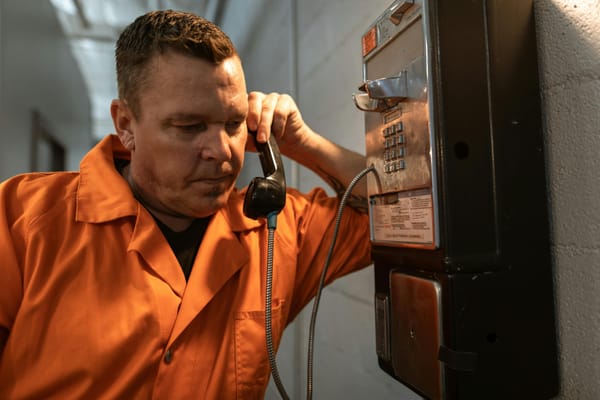Verizon as a Cable Guy To Shape Broadband Battle in Washington, D.C.
September 15 – For Capitol Hill BlackBerry users, Washington, D.C., is among the most wired cities in the country. But when those BlackBerry-toting legislative staffers go home and watch television, they step into world where the battle for better broadband depends upon cable TV regulation.
Broadband Census Washington D.C.
This is the 13th of a series of articles surveying the state of broadband, and broadband data, within each of the United States and its territories. Among the next profiles: Missouri, Nebraska, South Carolina and Virginia.
September 15 – Washington, D.C. is among the most wired cities in the country. The number of BlackBerrys on Capitol Hill alone could dwarf the population of Wasilla, Alaska, and with a hefty choice of carriers for those wanting e-mail on the go.
But when those BlackBerry-toting legislative staffers go home and watch television, they step into a much different world — back in time to world where the battle for better broadband depends upon cable TV regulation.
Unlike many major cities, Washington has two choices for cable TV: RCN and Comcast. RCN, which grew out of a locally-owned internet service provider called Erols, which later a part of RCN-owned Starpower, competes with Comcast and has a loyal following, especially among those who like to “root for the little guy.”
Verizon Communications also offers digital subscriber line (DSL) service in the District. And since the company began to deploy their fiber-optic service (FiOS) in the neighboring Maryland and Virginia suburbs, those other areas have gotten another choice for “cable” television.
Verizon would like the make Washington one of a few cities with a third choice. Nearly a year ago, this “telephone” company attempted to turn itself into a multichannel video provider here by applying to bring FiOS TV to the District.
The application was approved by the Office of Cable Television on August 8, after a lengthy and sometimes controversial process. The deal is still subject to approval by the D.C. Council and the Mayor’s office.
Enter the local politicos. Verizon has not yet said which neighborhoods would first receive the service. This omission has been the subject of controversy among city council members, some who want their wards, which have traditionally been the last to receive similar services, to get first crack at fiber.
It is expected that the first areas to be wired will be in the city’s Northwest quadrant, which contains more single-family homes, as well as apartment buildings in revitalized sections of the city, including Chinatown (home to the Verizon Center arena) and Columbia Heights.
Among the events along the way to a Verizon cable franchise include a cap on voice service charges through 2009, and accusations by Verizon critics that the company was deliberately letting its copper telephone network go without maintenance in order to invest more into fiber deployment.
The Office of Cable Television and Verizon have reached an agreement 50 pages in length, currently being reviewed by the mayor’s office and the city council. All parties expect the process to be completed “by year’s end.”
Meanwhile, Sprint Nextel is looking to leapfrog the entire process by deploying their WiMax service in the Washington-Baltimore region. The service is expected to be offered “soon,” said a Sprint spokesman, and may include portions of the Sprint TV service already offered to Sprint mobile phone subscribers.
Broadband Census in the States:
- 1. In Massachusetts, Governor to Sign $40 Million Broadband Bill Aimed at Spurring Investment
- 2. Task Force to Debate Whether A Gigabit Per Second is Too Fast for Minnesota
- 3. Relaunched Oklahoma City Wi-Fi Network Showcases City-Services Model
- 4. New York City and State Each Craft Broadband Policies; City Nixes Muni Wi-Fi
- 5. With Large Underserved Areas, Idaho Seeks to Establish Statewide Educational Network
- 6. Hawaii Broadband Task Force Aims to Tackle Problems of Speed, Competition
- 7. Modern-Day Alaskan Broadband Benefits from Satellite Earth Station Competition
- 8. First in Broadband Mapping, North Carolina’s e-NC Now Wants Faster Speeds
- 9. Colorado Innovation Council Seeks to Make Good on State’s Promise of Better Broadband
- 10. New Mexico Infrastructure Report Fails to Incorporate Broadband Access
- 11. Illinois Plants ‘Johnny Appleseed’ Projects Promoting Broadband in State
- 12. Maryland Continues on Long Haul Towards Universal Broadband
- 13. Verizon as a Cable Guy To Shape Broadband Battle in Washington, D.C.
Broadband Census Resources:
- D.C. Office of Cable Television, web site
- Verizon Application for Franchise, D. C. Office of Cable Television web site
- Notice of the Application of Verizon Washington, D.C. Incorporated for a Cable Television Franchise [PDF], Office of Cable Television web site
- Verizon’s FiOS Almost Cleared for Take Off in D.C., Multichannel News, August 7, 2008










